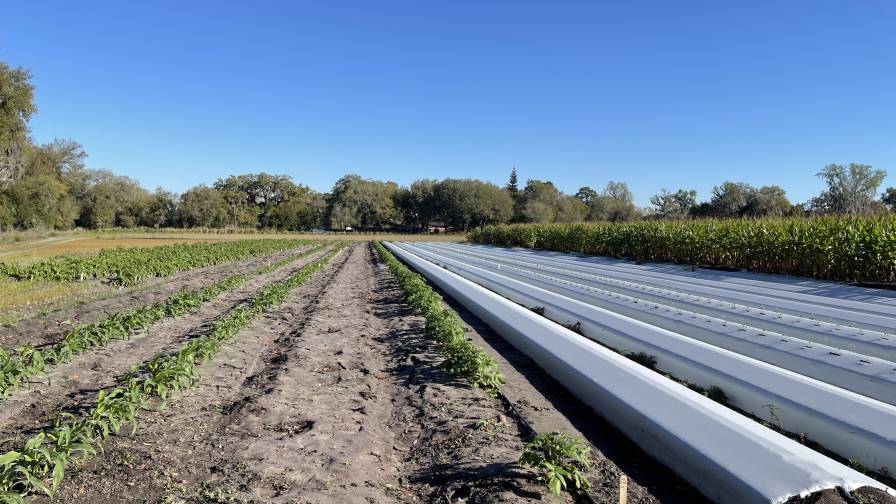A Flawed Concept

At Growth Energy, a coalition of U.S. ethanol supporters founded last November, we see agriculture as our natural partner. Renewable fuels are a valuable market for growers, with potential for growth. And we see the productivity of U.S. growers as the key to making our nation more energy independent — and revitalizing our rural communities.
But agriculture and renewable fuels have many opponents. Both ethanol and agriculture were the targets of a multimillion-dollar smear campaign in the “food vs. fuel” debate. Big oil companies want to sell fuel and fertilizer to the grower, but don’t want the grower to grow crops for fuel. Some misinformed people on the coasts don’t understand the potential of biofuels like ethanol and would oppose an increase in the amount of ethanol blended with gasoline.
But nowhere do we have a more potent threat to U.S. farming than with the concept of “international indirect land use (ILUC)” change. If you aren’t familiar with this concept, the flawed theory is that any acre of cropland diverted to fuel in the U.S. forces a grower overseas to plow under a rain forest to plant their own crops. That doesn’t make any sense on its face. But worse, our industry’s opponents want to assess additional “carbon penalties” against biofuels producers and growers calculated on the ILUC theory. The provision to assess ILUC penalties against renewable fuels makers was slipped into the 2007 Energy Act, and has been considered by EPA as a part of the newly-amended Renewable Fuels Standard (RFS).
Meeting Low-Carbon Standards
The additional carbon penalties under ILUC would prevent low-carbon ethanol from meeting low-carbon fuel standards. This has enormous implications for agriculture because it would block demand for ethanol and strangle the market for corn and other ethanol feedstock.
Growth Energy is firmly opposed to assessing growers and ethanol producers an ILUC penalty. Why should an Iowa corn grower or an Illinois soybean grower be forced to make planting decisions based on the moves of foreign growers or the farm policies of other nations? This puts our nation’s agriculture economy and our renewable fuels industry at grave risk.
What ILUC really attempts to do is shift the responsibility for emitting pollution away from the polluter. ILUC’s position is that he U.S. grower should be held to account for the actions of a polluter half a world away.
Growth Energy is committed to finding a legislative solution to ILUC. Our association is working with key allies on Capitol Hill to introduce new legislation that would end any chance of seeing ILUC become law. Rep. Collin Peterson (D-MN), the chairman of the House Agriculture Committee, amended the House Climate Change bill this spring so it would include language postponing any ILUC penalties until the completion of a thorough study by the National Academy of Sciences.
Our association welcomes the opportunity to debate this issue in the U.S. Senate, where we are working to see legislation introduced that mirrors the House bill. Recently, Sen. Tom Harkin (D-IA) filed a bill that would have blocked EPA from using any appropriated funds to calculate ILUC penalties against U.S. biofuels producers — and won an important admission from EPA Administrator Lisa Jackson, conceding uncertainties about the science behind ILUC.
More Uncertainties
In fact, there are great uncertainties and outright flaws in the concept of ILUC. Growth Energy included many of these in the technical and economic modeling data our group filed as part of our comments to EPA on RFS2 and with the California Air Resources Board, the two major regulatory arenas in which we have fought ILUC.
First, the argument that we don’t have enough crop yields to meet both food and fuel needs is false. Average yield for corn is expected to double by 2030 — possibly as much as 300 bushels of corn from one acre. That is more than enough grain to meet our demand for renewable fuels as well as provide the food necessary without plowing one additional acre of land in the U.S. This year, corn growers are expected to produce the same amount of corn as two years ago on 5 million fewer acres.
Second, the architects behind ILUC neglect to mention the fact that most of the arable land planted in the U.S. goes to produce animal feed, not food for humans. About 6% of the arable land in the U.S. is needed to produce food directly for human consumption, whereas about 90% goes to produce livestock feed. Therefore, the claim that growing some U.S. grain for fuel instead of food is leaving others hungry and forcing new land into production in other countries is unfounded.
Third, a July analysis by Dr. Robert Brown, director of the Bioeconomy Institute at Iowa State University, examined soybean and corn prices on the Index Mundi and data from the United Nations Food and Agriculture Organization. He found no correlation between Brazilian deforestation and the price of either soybeans or corn.
Most bizarre in the thinking of those behind ILUC is the idea that only biofuel producers — and by extension the growers who look to renewable fuels as a market — are to be assessed with the ILUC penalties, not the polluters and fossil fuel producers. This makes no sense. This essentially says that biofuel production is not a sustainable practice, but converting land to new housing or cutting down the rain forest to harvest timber or plant tobacco (practices that are directly threatening the Amazonian rain forest) are somehow sustainable practices.
Getting Involved
This is a serious debate. American agriculture would be making a serious mistake to not fight ILUC with every ounce of strength it has. If ILUC becomes reality, it would mean an end to the U.S. renewable fuels industry, devastating a crucial and growing market.
Growth Energy looks forward to working with any individual or group that shares the vision of an America that is more energy independent. We want to reduce our dependence on foreign oil by increasing our use of domestic, renewable fuels such as ethanol. Doing so would revitalize rural communities, cut greenhouse gas emissions, and reinforce America’s economic and national security.
In my lifetime, I have never seen another opportunity for rural America like I see in renewable fuels. The opportunity to make America more energy independent by growing our fuel is not only a potential economic boon for farming, but it is the right thing to do for our country’s future.





